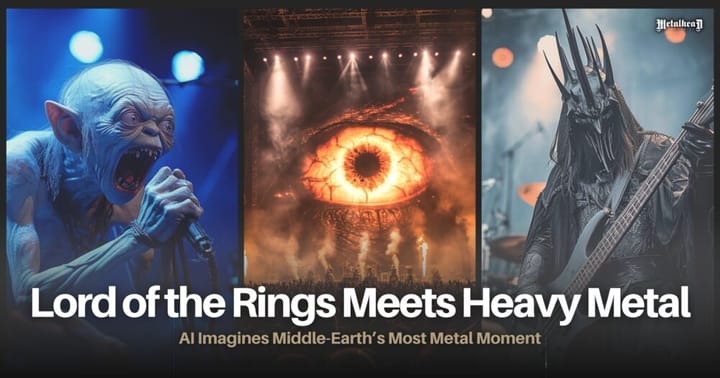Metallica Album Sales - Ranking Their Best-Selling Albums and Musical Legacy
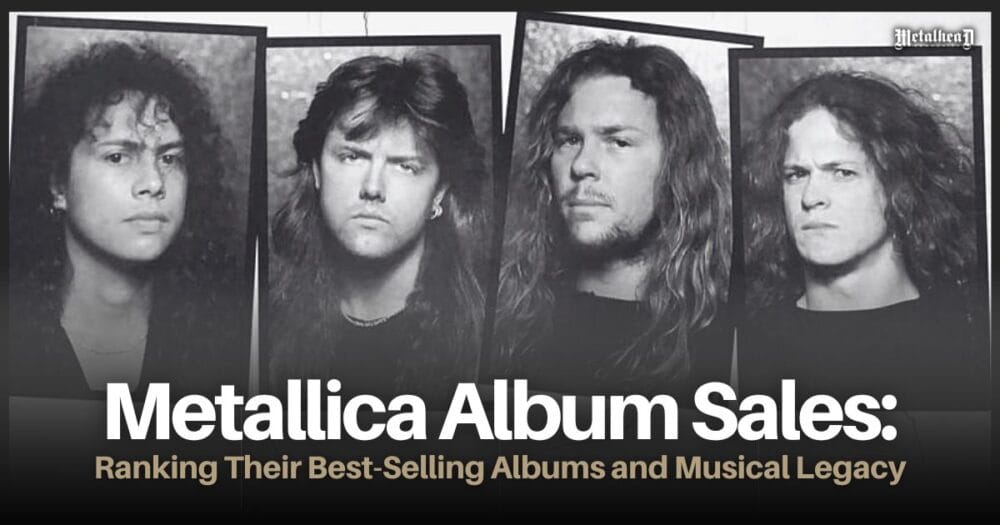
Metallica is considered one of the most successful metal bands to have ever existed in the history of music. The band has not only earned multiple gold and platinum records throughout their careers since 1986 but also performed some of the world's most successful tours. However, since its inception, each album has had its own style and approach, different from the others.
The band was formed in the city of Los Angeles in 1981 by Lars Ulrich and James Hetfield (later Dave Mustaine and Ron McGovney would join).
Although Metallica is mainly defined as a thrash metal band, over time, it has evolved from thrash metal to heavy metal and even towards hard rock, incorporating more arranged sounds without losing its base, mainly influenced by bands like Diamond Head, Black Sabbath, or Kiss, among others. With more than 120 million records sold, they have carved their name in history as one of the "Big 4" of thrash metal bands, along with Megadeth, Slayer, and Anthrax.
Each record was made in a different context, which is reflected in the final product. For this reason, this time, we will talk about some of the best metal records ever made in history. We have created a list of the ten best-selling Metallica albums, along with their other releases.
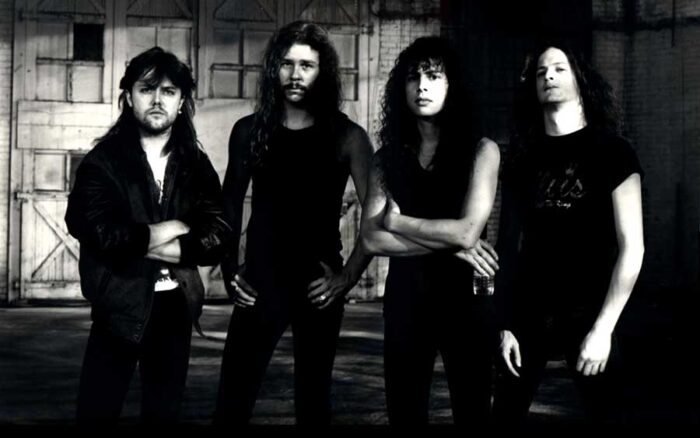
St.Anger (2003)
At the time, "St. Anger" was the most awaited album. Its predecessor was released six years earlier, and when 2003 came, it was a highly anticipated album that immediately jumped to the top of the charts.
However, the production was fraught with problems, starting with the resignation of their bassist Jason Newsted in 2000. Public opinion also turned against them as a result of their lawsuit against Napster. And to top it off, during the production of the album, the singer James Hetfield was admitted to a rehabilitation clinic for his addiction problems.
All these issues were captured in the documentary they filmed; "Some Kind of Monster" (released in 2004), telling the problematic process of creating the album. The lack of solos throughout the album, along with the controversial snare drum sound, didn't help either, and the outcome didn't satisfy most of their fans.
Although they won the Grammy for Best Heavy Metal Performance for "St. Anger," this was Metallica's lowest moment. The album did not meet expectations, weighed down by the bad atmosphere among the musicians after the departure of Jason Newsted and the time that James Hetfield spent in rehab (they were never this close to separating).
The lack of great guitar solos, the canned sound of the drums, and an absolute absence of a general aim caused considerable controversy. Despite this, they shipped 6 million copies and did not sink completely, thanks to their live show performances, Metallica's most significant asset of all time. "St. Anger" is the tenth best-selling Metallica album with 6 million copies.
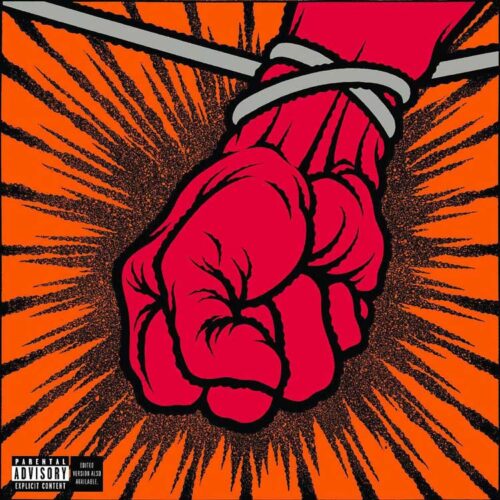
Load (1996)
After an extensive tour of the Black Album and descending from unprecedented international success, Metallica found themselves at a crossroads of how to continue their careers. Their solution was quite surprising: a complete change of music style and a haircut.
Along with the members' new look, the heavy riffs of thrash metal disappeared, and traditional/blues influences arrived, as in "2x4," and even country, with the acoustic "Mama Said." Despite criticism from the faithful, the album was a commercial success, selling 5 million copies in the United States alone. It was quite successful, and they reaped songs like "Until It Sleeps" and "Hero of The Day."
The 'mainstream' opening they already made on their multi-platinum 'Black Album' turned them into real heavy metal totems for the masses. Always curious, for their sixth album, they let themselves be carried away by the grunge that dominated everything in the first five years of the nineties, they forgot about thrash and went into hard rock.
As if that were not enough, they cut their hair and were interested 'too much' in their image. The controversy was one of those that marked an era. Load is the ninth best-selling Metallica album with 7.9 million copies.
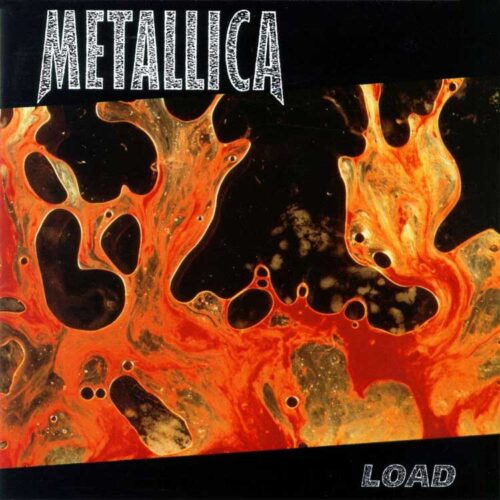
Reload (1997)
The sequel to "Load" came a year after its release. Originally, it had been planned for the previous album to be a double album, but finally, it was decided to release it as a separate album with extra songs. Although the band considers them to be part of the same entity, "Reload" differs in themes that are a little more elaborate and heavier than its predecessor, such as "Fuel," a single that continues to be a signature song until today, as well as "The Memory Remains" and "The Unforgiven II."
Despite this, the band did not shy away from experimentation, with songs like "Low Man's Lyric" containing the unusual instrument of the hurdy-gurdy, and "Where The Wild Things Are," one of the few songs written by bassist Jason Newsted. This era of Metallica was captured on their "Cunning Stunts" (1998) DVD.
With many materials from the "Load" sessions, the band decided to release "Reload" as a follow-up soon after. This work pleased many of those who were disappointed and thought that Metallica would never be the same as before. And the truth is that they were not the same, even though some iconic songs like "Fuel" and "The Memory Remains" (with Marianne Faithfull) were widely accepted. Reload is the eighth best-selling Metallica album with 8 million copies.
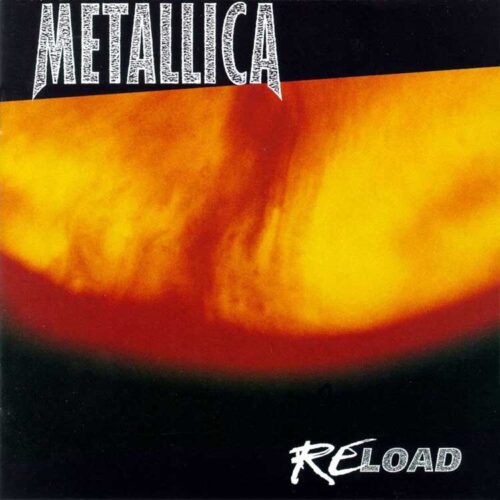
Death Magnetic (2008)
After five years of the disappointing mark of St. Anger, "Death Magnetic" was released, an album that spent a long time in construction. This album would also mark the introduction of their new bassist, Robert Trujillo, who joined Metallica in 2003 and had not recorded on any album until then.
The album meant a return to the classic Metallica thrash formula that they had perfected on their first albums. The solos and the thrash metal drive returned with songs like "That Was Just Your Life" and "My Apocalypse." In addition to their iconic instrumental songs since 1989, "Suicide and Redemption," written in part by Trujillo.
In terms of sales, the album was a success, being certified two times platinum in the United States and four times in Canada. The songs "The Day That Never Comes" and "Cyanide" were on every radio station for a long time.
The biggest criticism of the album was not about the compositions, but about the production that was overseen by Rick Rubin, resulting in the album sounding very compressed. At the end of the 'St Anger' tour, the band took a long break and decided to change producers (Rick Rubin for Bob Rock, a regular since 1991). With renewed momentum, they delivered the compelling "Death Magnetic," reconciled with the fans, and, most importantly, with themselves. The result was a work in which Metallica looked to the future but also recovered recognizable elements from their early works. Death Magnetic is the seventh best-selling Metallica album with 8 million copies.
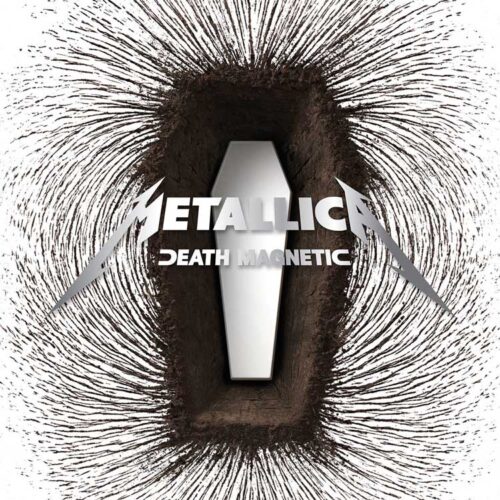
Hardwired... to Self-Destruct (2016)
Metallica's most recent album at the time of its release, "Hardwired... to Self-Destruct," showed that the years did not make Metallica smoother. The band showcased their current state with swift songs like "Spit Out The Bone" and "Hardwired." It also featured slightly more nuanced tracks with "ManUNkind" and "Am I Savage?"
The album was a success, having been certified Platinum in an era where some say the album format - much more the double album, in this case - has died. Although it is not the same Metallica as in the '80s, the years have not passed in vain. Metallica has learned from its past experiences, and this is reflected in the present of the band. Eight years of constant touring and the premiere of their 3D movie, "Through the Never," delayed Metallica's album release more than was desirable. It is not closing a circle because there is a future. Hardwired... to Self-Destruct is the sixth best-selling Metallica album with 12 million copies.

Kill 'Em All (1983)
Metallica's debut album, "Kill 'Em All," was foundational for the thrash scene in California and around the world. Despite not being a commercial success initially, "Kill 'Em All" showcases an energy that the band would maintain for years to come. It is one of Metallica's best-selling albums.
The album has compositional contributions from Dave Mustaine, despite not being the one who recorded the guitar on the album, as he was fired shortly before. Nevertheless, many songs were mainly written by him.
"Kill 'Em All" left classics that remain popular to this day, such as "Hit The Lights," "Seek And Destroy," and "Jump in the Fire," with a special mention to Cliff Burton's bass solo: "(Anesthesia) - Pulling Teeth."
After several promising demos, Metallica's first album marks one of the most overwhelming beginnings in memory. An explosion of primitive thrash metal, a genre they pioneered along with Anthrax, Slayer, and Megadeth. The album, beloved by true Metallica fans, contains hits like 'Hit the Lights,' 'Motorbreath,' 'The Four Horsemen,' 'Whiplash,' 'Metal Militia,' and the endlessly chanted 'Seek & Destroy.' They managed to win over 7 million new fans, and Kill 'Em All is the fifth best-selling Metallica album with 12 million copies.
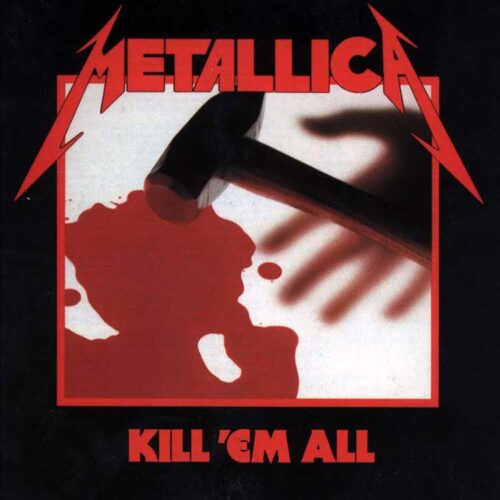
...And Justice For All (1988)
Metallica's fourth album ranks fourth on the list. If the namesake was the band's consolidation within the world as the most popular in thrash metal, "Justice" was the first approach, although the history of this album is tragic. "...And Justice For All" is the first album after the tragic death of bassist Cliff Burton and the introduction of Jason Newsted on bass (although it is hardly heard in the final mix of the album).
Musically, "Justice" progresses to longer and slightly more progressive pieces, such as the title track "...And Justice for All" and the song dedicated to the late Cliff, "To Live is To Die." It also features songs that rank among the heaviest in the group, such as "Harvester of Sorrow" or "Blackened." This album meant several first times for the Californian thrash band. Their first music video would be for the song "One," a track that would also earn them their first Grammy Award for Best Metal Performance.
The eighties ended with rock and heavy metal in full swing, and Metallica had already become the king of heavy music. This time, the success was not only from their thrash metal character but also from the epic compositions with significant changes like "One" and songs as heavy as "Harvester of Sorrow" that followed paths that were already open before. Metallica's fourth wonder shipped 14 million copies as its fame became universal (the full leap would come at the turn of the decade). ...And Justice for All is the fourth best-selling Metallica album with 14 million copies.
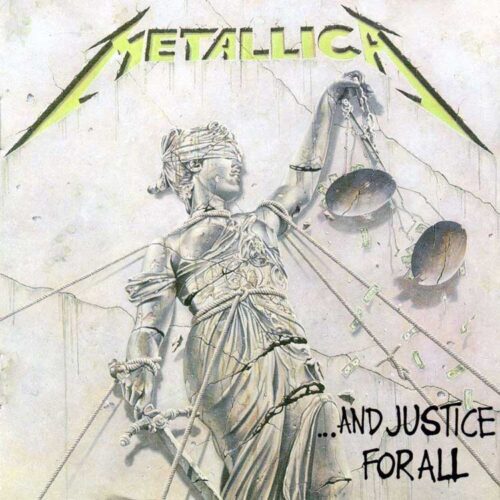
Ride the Lightning (1984)
They say you have a lifetime to write the first album, but you have to write the second one in a few months. However, this case of second disc syndrome did not happen to Metallica. The album showed great improvement from the first, being just as (or more) intense, as with "Fight Fire with Fire," and creating even more iconic hymns like "Creeping Death."
However, the great progress came with the inclusion of experimentation in songs such as "Fade to Black," or the band's second instrumental track, "The Call of Ktulu." The second Metallica album proved that "Kill 'Em All" was not a stroke of luck but only the beginning of a great legacy that continues to this day.
Metallica confirmed what they were aiming for in their debut with their second rush, which is basically like a freight train falling down the hill, but it already showed a clear desire to avoid stagnation on fast issues. Ride the Lightning is the third best-selling Metallica album with 20 million copies.
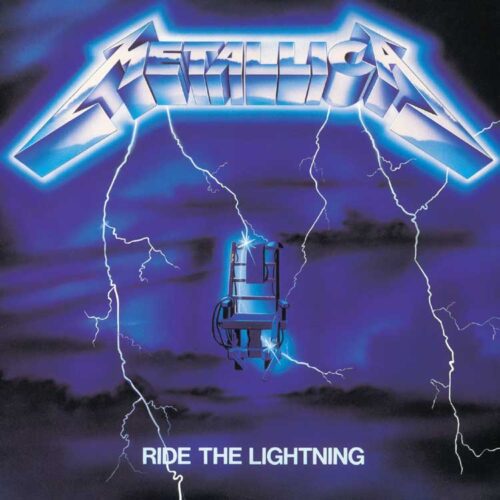
Master of Puppets (1986)
It couldn't be any other. Metallica's great masterpiece has everything that makes the band renowned. Fast riffs, heavy songs, ballads, melodic interludes, and impeccable compositions.
Master of Puppets would be the last album in which bassist Cliff Burton, who died in a bus accident on September 27, 1986, during the tour of this album, would participate in life. It is undoubtedly the most iconic album in Metallica's discography and one of the greatest in the history of metal.
This album had certain peculiarities, some of which are:
- At 24, Cliff Burton left us with one of his best works, immortalizing himself in the history of music.
- This album is the first Metallica album in which Dave Mustaine, a former member of the band, had no participation and was expelled from the group due to alleged excesses. (Some undermined them, saying that Mustaine was the only one with compositional talent, creating the best songs. Thus, Hetfield, Ulrich, Burton, and Hammett gave us one of the best albums in metal, and probably the best in the band.)
- This is the album that gave Metallica a deserved place within the four biggest thrash metal bands, along with Slayer with the devastating "Raining Blood," Megadeth with the impeccable "Peace Sells… but, who's buying?" and Anthrax with the exquisite "Among the Living."
- The respected website "Metal Rules" considered Master of Puppets the best metal album of all time, surpassing masterpieces such as Judas Priest's "British Steel" or Black Sabbath's "Paranoid."
Master of Puppets is considered the best album of the band for the extraordinary quality of the songs. Each song is a great lesson.
The third album and another 21 million units sold thanks, above all, to the title track, possibly the most complete Metallica song in its entire career and the one that best summarizes its conception of music. Master of Puppets is the second best-selling Metallica album with 21 million copies.
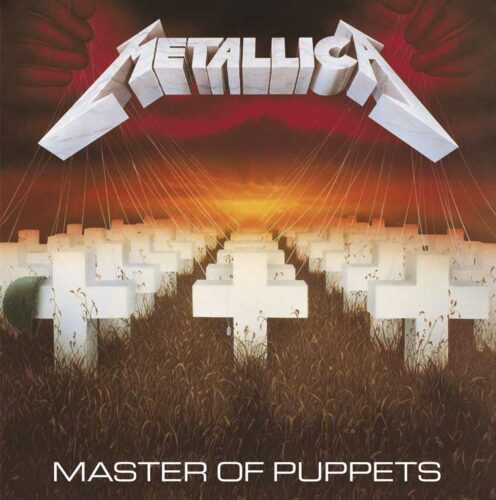
Metallica (The Black Album) (1991)
"Metallica" is one of the best-selling albums in history, also known as "The Black Album." It is undoubtedly the band's most famous work. Metallica has sold over 30 million copies of this album alone since its release.
Despite being the first departure from their classic thrash metal sound, this album has the most balanced and heavier approach to metal songwriting. In addition, the lyrics advanced into more personal territories, such as "Wherever I May Roam," "The God That Failed," and even the "Don't Tread on Me" policy.
Upon its release, the album received widespread support from music critics and became the first Metal album to go global, being one of the best-selling albums of the year it came out.
Everything they had pointed out in their previous albums was solidified in the "Black Album." Their less raw and more "mainstream" sound led them to sell 31 million copies. They proved themselves once again and crushed every single record with songs like "Enter Sandman," the timeless ballad "Nothing Else Matters," "The Unforgiven," "Wherever I May Roam," "My Friend of Misery," and the oppressive brutality of "Sad but True." Heavy, thrash, rock, and maximum inspiration in its twelve cuts. The creative and commercial pinnacle of Metallica.
After the Black Album, which was an incredible worldwide success, and the mammoth tour that followed, the band was at its highest moment of popularity. "The Black Album" is the best-selling Metallica album with more than 30 million copies.
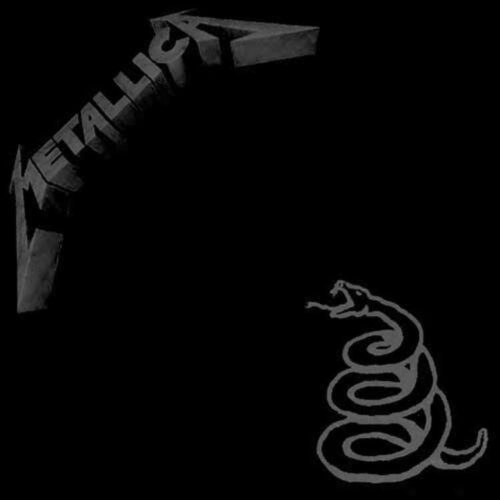
Among Metallica's studio albums, we have also researched sales of other releases such as Garage Inc., Garage Days, LULU, and S&M. This time, we have ordered them from the best seller to the least sold.
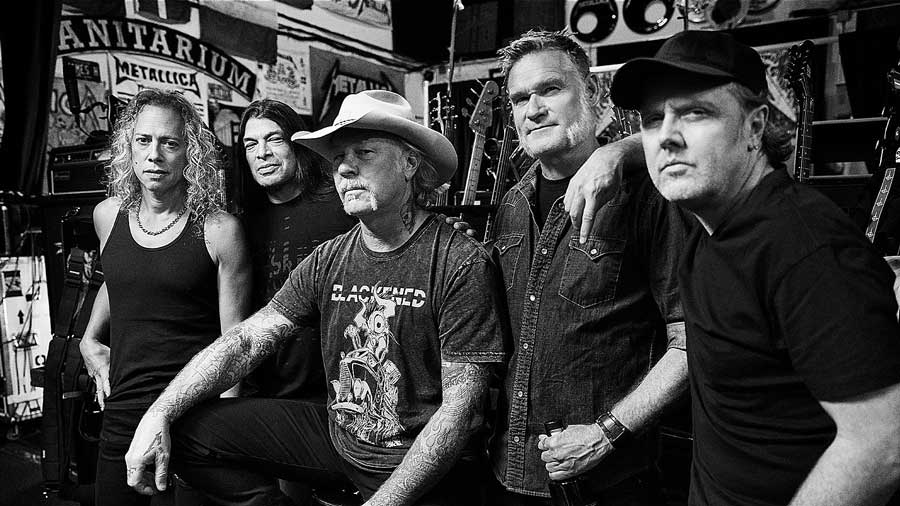
Garage Inc. (1998)
Garage Inc. was a production by Lars Ulrich and James Hetfield along with Bob Rock and Mark Whitaker. This album is a cover album in which the band paid tribute to their roots.
Garage Inc., released in 1998, has sold more than 6 million copies even though it was the second album recorded for that matter. The set stands out as a creative look towards themes from the '70s and '80s, some even with other musical structures, and Metallica was able to fill them with renewed personality, without noticing that several had a poster of untouchables.
Garage Inc. brings together not only heavy metal themes but also adds a much broader compendium of influences, sounding refreshing for its well-treated variety of styles.
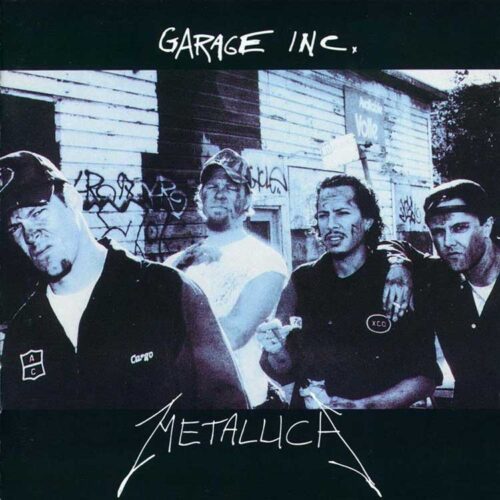
S&M (1999)
"Symphony and Metallica" is a gigantic experimentation with pretensions of greatness by its composers of both genres, even though it had already been tried and tested previously by the legendary Deep Purple.
They gave way to this collision of sounds and chords subordinated to the orchestral work of their greatest hits, without losing the charisma of their unique way of making music. The San Francisco Symphony Orchestra gave the night more texture and energy, and once again, Metallica wrote history. "S&M" sold 4 million copies.
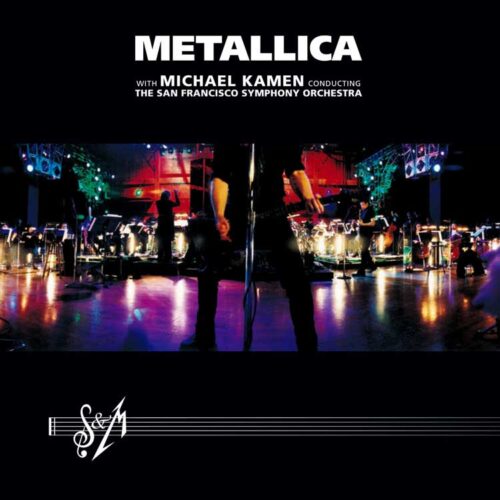
Garage Days (1987)
In such a short repertoire, Metallica reconciles punk, heavy metal, and old school by choosing songs from all those scenes and arranging them so that they all sound like themselves. "Garage Days" sold only 3 million copies.
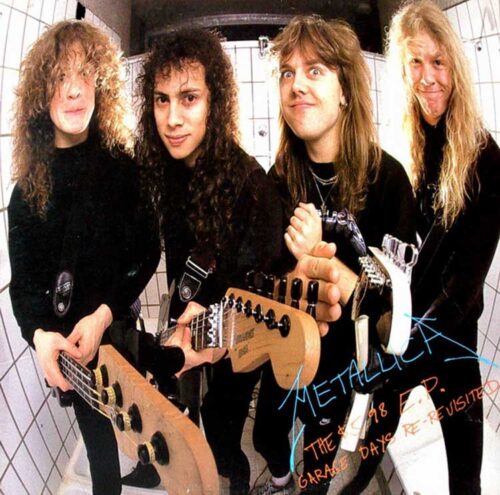
LULU (2011)
"Lulu" was the collaborative album between Lou Reed and Metallica released in 2011, which received a mostly negative response from several prominent critics and seemed to satisfy neither Metallica nor Lou Reed fans.
"Lulu" features ten songs spread over 2 CDs with a duration of almost an hour and a half. It is a rock album, mostly consisting of long compositions that blend the influences of both Metallica and Lou Reed. The album was ranked 36 on the Billboard list and sold only 2.8 million copies.

In conclusion, Metallica has carved an indelible mark in the history of music with their iconic albums and unparalleled musical legacy. From their groundbreaking debut "Kill 'Em All" to the monumental success of "Metallica (The Black Album)," each release has showcased their evolution as artists and their ability to captivate audiences across generations. While some albums faced challenges and criticism, they remained unyielding in their pursuit of musical excellence. With millions of copies sold and a dedicated fanbase that spans the globe, Metallica's discography continues to resonate with listeners young and old, proving that their influence on the world of heavy metal is truly timeless. As we eagerly await their future creations, we celebrate the enduring brilliance of Metallica, a band that has forever changed the landscape of rock and metal music.
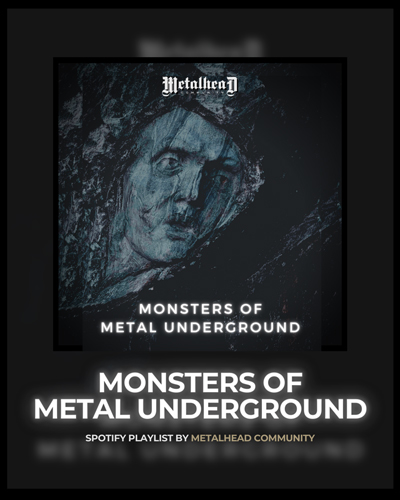
Listen to Metalhead Community's Monsters of Metal Underground playlist on Spotify


